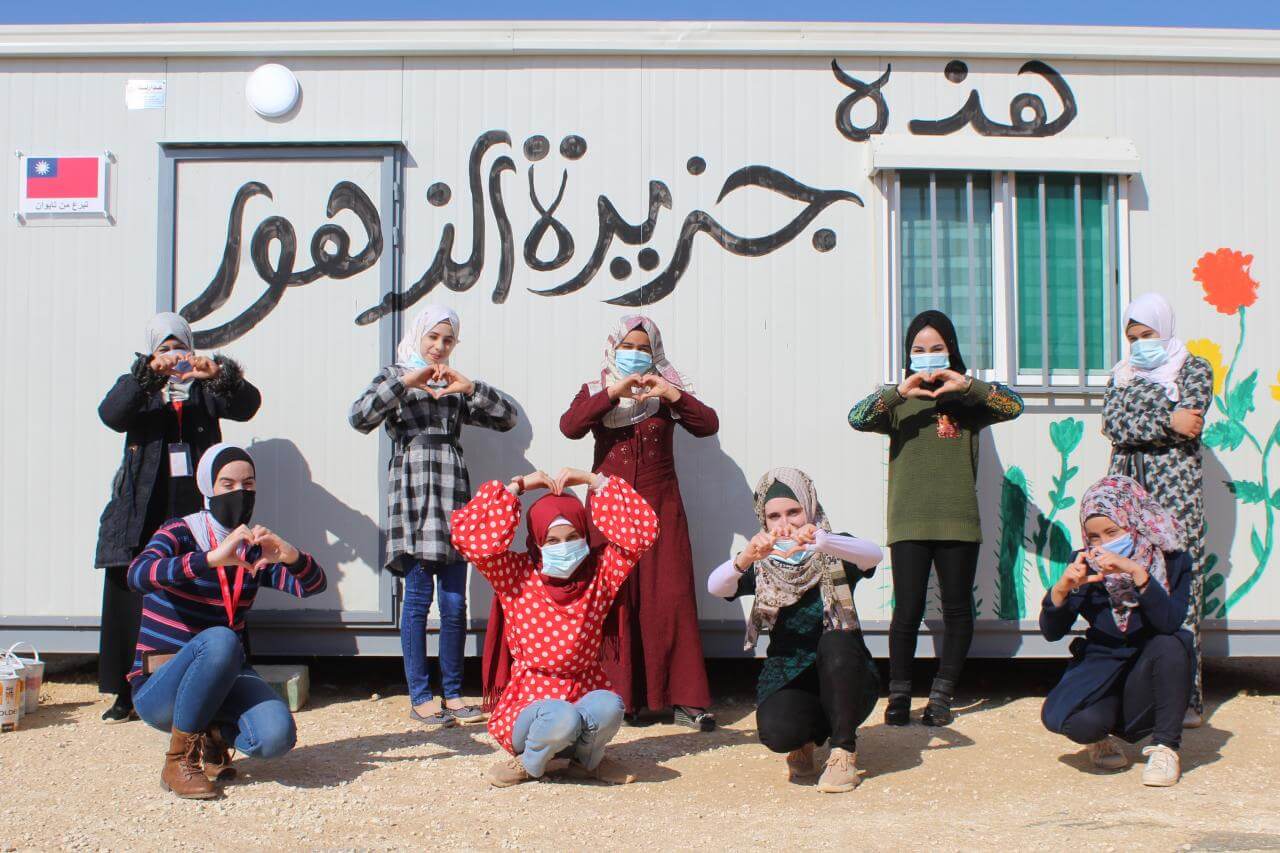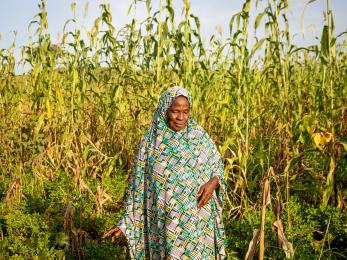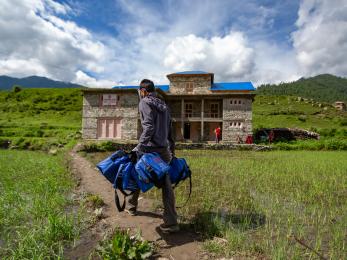The woman who gave me hope in the midst of COVID-19

I used to be a reporter at a local Georgian TV station, and the biggest crisis in my life was the Georgian-Russian war of 2008. I remember how powerless I felt, how full of despair. When COVID‑19 hit my country — our first recorded case was February 27 last year — those feelings returned. But this time I had hope: Zeinab Abuladze gave it to me.
Let me tell you how I met Zeinab. I’m a team member on Mercy Corps’ Alliance Caucasus programme, a 13-year programme funded by the Swiss Development Cooperation and Austrian Development Cooperation. In an ordinary year, we work with business people in agricultural sectors like livestock, dairy, and honey to improve their business practices, and ultimately, to help them grow their businesses. I’m in charge of qualitative management and information sharing, so my first thought when COVID‑19 hit was for the dairies, slaughterhouses, honey processors, and wool exporters. How could they continue to do business in the midst of such disruption? I had spent a decade listening to their passion, their plans to grow their businesses. I was afraid they might fail — putting the lives of almost 500,000 people at risk.
Our programme relies on data — specifically, information about incomes, jobs, and business health. When COVID‑19 struck, it was clear to me that we needed to know exactly how the pandemic was impacting our suppliers, their customers, and our exporters, many of whom rely on international trade to sell their products, or to purchase business supplies like animal feed and veterinary medicine. We needed to share this information with the farmers we serve, so they could make life-saving changes to weather the crisis. We also needed to share this information with our donors, so they could understand how best to support programmes like ours. And we had to act fast.
The dairy sector in Georgia is critical. All livestock farmers in my country — regardless of where they live or what ethnic group they belong to — make money from dairy. It’s also one of the few sectors where women are the center of production. Which brings me back to Zeinab.
Zeinab runs Tsintskaro, a dairy business she began when she was forced to move from her hometown in 2005 due to a landslide. At that time, she invested in five cattle and began making handmade cheese. Her business went so well she started buying milk from other women, sometimes collecting it in bathtubs around her home. Even after she hired two women to help with cheese-making, she still couldn’t process the milk fast enough. On top of those challenges, her cheese did not meet government food and hygiene standards.
That’s when we came in. Through a grant, we supported the construction of a safety-compliant building in her village, helped her purchase production equipment, and provided training to the women supplying her with milk. Now she has a staff of seven, purchases milk from 300 different women farmers, and can process 4.5 tonnes of milk a day (a 200% increase in production). Her brand is so popular, she’s able to sell to Georgia’s growing supermarket sector and reach urban consumers. Since she started with us, she and her husband have tripled their income, and she’s become a leading voice for the Georgian dairy sector.

COVID‑19 still affected Zeinab. But thanks to the savings she had, the investments in technical equipment, and their connection to a variety of sales channels, she was able to modify production when her usual markets closed. This also helped her keep her staff — albeit at reduced hours — rather than letting them go.


Zeinab is a cheerleader — brave, hard-working and kind, with a strong sense of social responsibility. During the first weeks of the COVID‑19 crisis, she even traveled to Tbilisi, our capital, to distribute cheese to the medical staff at the Infectious Diseases and AIDS Center. No, Georgia has not escaped COVID‑19. But this time, we had people like Zeinab to give us hope.



